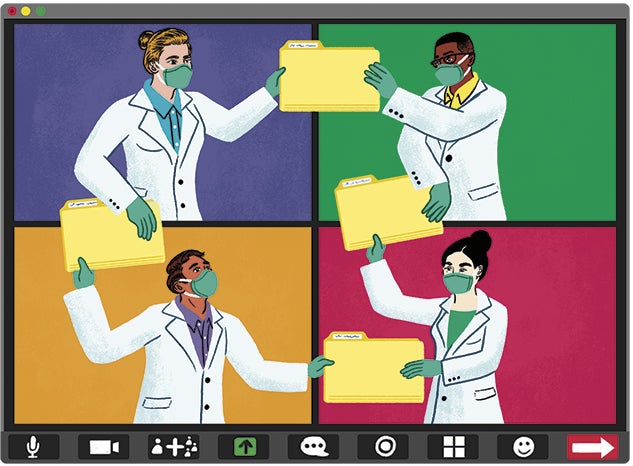Pivoting in a Pandemic
As a pathology resident and research scientist, I’m refocusing my work to help evaluate convalescent plasma as a treatment option for COVID-19 patients.

New York is supposed to be the city that never sleeps. Things are supposed to happen around the clock every day of the year — but right now, the entire city is on lockdown. You walk down the street and don’t see a soul. In this town, it feels apocalyptic.
I came to New York in July 2019 as an M.D. and a Ph.D. I had just finished a postdoctoral fellowship at MIT in Boston and was starting a pathology residency at Mount Sinai Hospital, one of the largest hospitals in Manhattan. Before the pandemic set in, I was developing new nanotechnology and imaging techniques to help fight against cancer. But since the beginning of March, I’ve been working nonstop with the rest of my colleagues to fight against COVID-19.
No matter which department we’re in, there’s a sense of being united against a common enemy. Everyone here wants to do something meaningful to solve this problem. We’re all being retasked from our usual jobs to other areas where we can have an impact depending on our skill sets. For some of us, that means taking shifts in the emergency department or taking on other posts where we wouldn’t normally work.
In my case, instead of my normal research, I’m using my lab skills as part of Mount Sinai’s convalescent plasma program. It’s a relatively new treatment strategy: We take donated blood from people who have recovered from the virus and extract antibodies from it that may help newly infected patients recover. In order to be effective, though, the donors’ blood has to have a high level of the COVID-19 antibody, so we’re testing those donations to find people who meet the right criteria.
Mount Sinai was one of the first hospitals in the country to use this treatment, but getting there wasn’t easy. It takes a huge number of steps to create and validate new tests and treatments. By necessity, the pandemic has really changed the way we work as scientists — instead of doing things the traditional way, slowly and methodically, we’ve been trying to accelerate research as quickly as possible.
We’re still following the scientific method and having all the right controls and so on, but we’re trying to balance that with the ability to release new information and discoveries to the rest of the community as soon as possible. The paradigm has compressed something that would normally take months and years to develop and execute into something that happens in just a few days.
For us as academics, the change has been difficult and a little disorienting, but it’s ultimately positive. The challenge in science has always been that research happens in the silos of our labs or departments or schools. Even when work is done, it may not be published for a year or two, so there’s always a lag. There’s never been a good model for having that process happen more quickly.
Right now, a lot of physicians are sharing best practices in Facebook groups and Google Docs. There’s no centralization. I think every hospital has some internal group that’s trying to vet all this information, but we’re all still doing it with limited context in our respective silos. The silver lining of the COVID-19 pandemic may be that it forces us to find new ways of not only doing science, but also sharing it with the rest of the world. It’s already making us think about how to balance releasing new findings in a timely manner while still properly vetting new material.
During this time, I’ve really been struck by how quickly scientists and clinicians have been able to come together as a community toward a common goal, whether we’re working on the academic side, the clinical side or in private industry. I wish it didn’t take having a pandemic to bind us all together in that respect.
I want to be able to build upon our collective knowledge for the betterment of human society as opposed to just focusing on the next paper or grant or promotion. I don’t know if that will continue to stick after the pandemic subsides, but I hope people realize that none of us can do what we do by ourselves. It really does take our whole community to come together to tackle some of these larger challenges. — As told to David Levin
Freddy Nguyen was a postdoctoral fellow at MIT and is a pathology resident at Mount Sinai Hospital in New York City.
David Levin is a freelance science and technology writer based in Boston, where he lives with his wife (a proud former Hanszenite) and their two sons. His work has appeared on NPR’s Here And Now and All Things Considered, PBS’s NOVA and other national publications.
